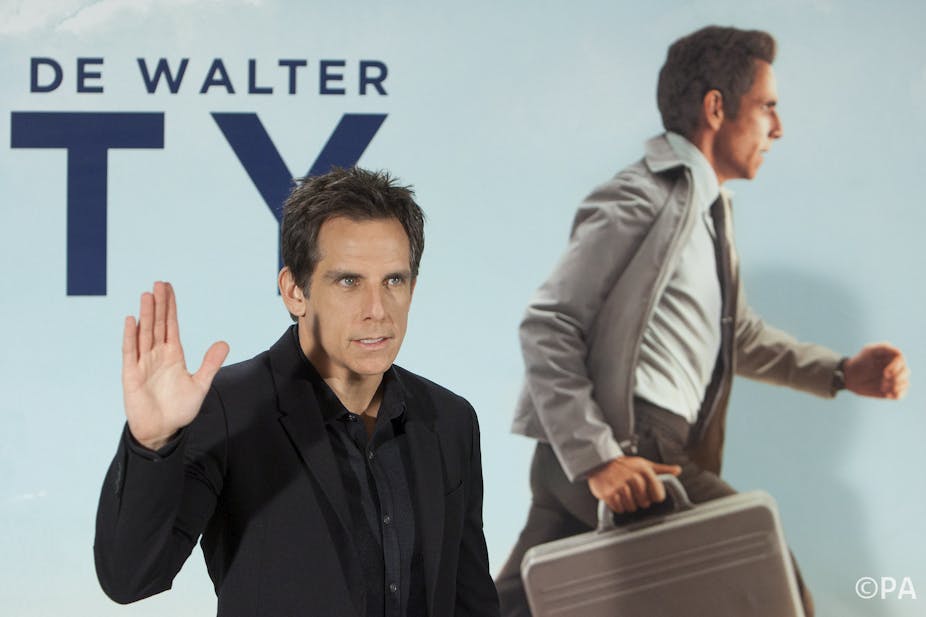Even the briefest glance at recent cinema listings and television schedules suggests that the remake is everywhere. Currently showing in the UK is The Secret Life of Walter Mitty, an update of the 1947 film of the same title starring Danny Kaye. Brian de Palma’s 1970s high school horror Carrie was also recently remade.
And most contentiously, a new version of 1991 action cult classic Point Break is in production, causing uproar amongst fans. On television, reboots and franchises of a number of those Scandinavian detective series so loved by the chattering classes have appeared to mixed reviews.

So should we worry about these remakes, or just enjoy the opportunity to see new versions of some of our favourite stories? If we listen to the vast majority of film critics, it seems we should be rather more than worried. Critics routinely condemn the remake, typically seeing very little artistic merit in new versions of earlier films. Their anxiety becomes even more pronounced when the remake source is a classic film or a cult favourite. Here the new version is seen to threaten the status of its predecessor, somehow undermining the latter’s claims to artistic integrity and originality.
Most of us would agree the critics have got it right with a great many remakes – hands up those who would be willing to sit through a second showing of Guy Ritchie’s lamentable Swept Away? Nevertheless, there are some honourable exceptions, including David Fincher’s recent reworking of The Girl with the Dragon Tattoo, which arguably out-did its Scandinavian source in terms of snow covered, soft lit “European” aesthetics.
So why this almost uniform hostility? To a great extent this is down to the perception of the remake as little more than a chance to make an easy buck. Just like sequels and series and other forms of cinematic and televisual rebooting, most commentators understand the remake to be driven by commercial imperatives which ultimately do away with any claim to artistic merit. This perception is strengthened by the fact that a great deal of remaking takes place in Hollywood, and that a great number of films selected for remaking come from elsewhere. It is very easy to see a US remake of a French film, fêted by critics and audiences at home but with little if any visibility elsewhere, as yet another form of American cultural imperialism.
What is certain is that the remake is here to stay. Remaking has a long history, stretching right back to the very earliest days of film production, when multiple versions of movies were common. Without a doubt, many remakes were indeed driven by money. A new version of an already popular film or programme seems to offer potential for surefire success.
But should this prevent us from enjoying all remakes? We might take issue with the producers of Sommersby (1993) who bought the rights to its source film, Le Retour de Martin Guerre (1982), in order to prevent its release in the American market and potential competition for the remake. Yet as we rush to the French film’s defence, should we not ask ourselves if it really needs defending at all? With its narrative of impostors and mistaken identity, Le Retour de Martin Guerre draws on earlier narratives, perhaps making it no more an original, no less a remake, than its American update.

British television viewers in their millions enjoyed Steven Moffat’s Sherlock this January, reminding us of the advantages of reworking and refreshing popular stories. Conan Doyle’s detective has been subject to hundreds of adaptations over the years and it is this which makes him such an iconic cultural figure and keeps readers and audiences coming back for more. Benedict Cumberbatch’s 21st century Holmes doesn’t threaten Conan Doyle’s original. Instead, he makes him fresh and relevant to new audiences, audiences who may even be inspired to return to earlier versions of his adventures.
So yes, we should worry about some remakes; those movies planned by the money men which, rather than adding and updating, simply make us nostalgic for the films they imitate. But others should not worry us at all. Instead, we should enjoy them for what they are: new ways of telling familiar stories which, rather than threatening their sources, can bring them alive for different audiences in new places and times.

